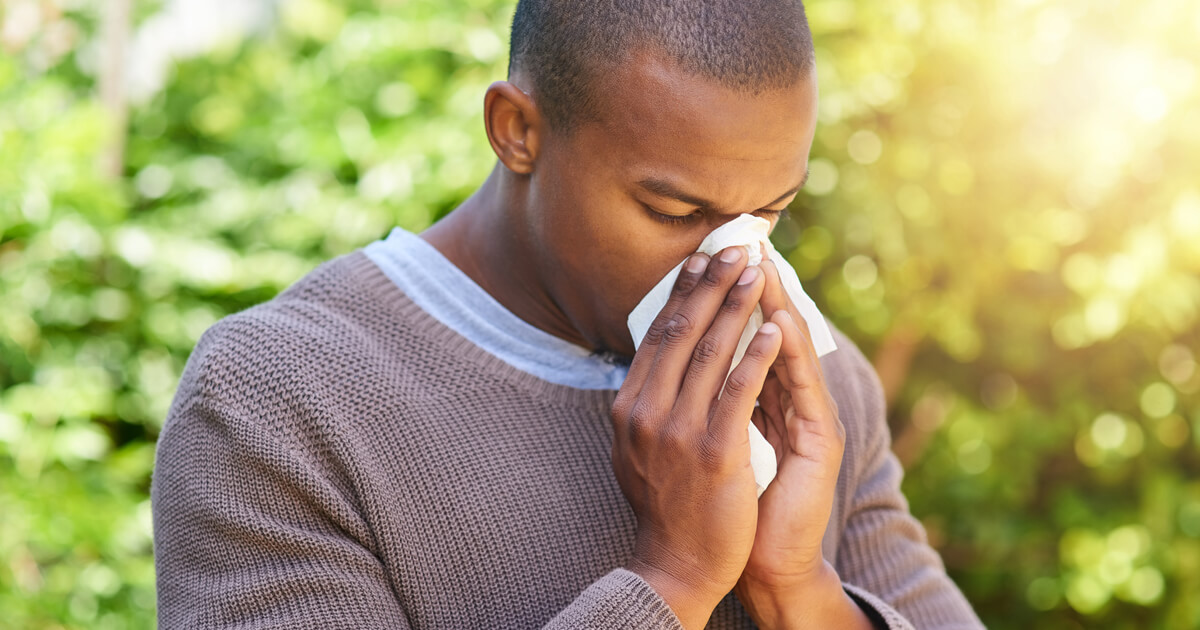Cold vs Allergies: Which Is It?

You find yourself coughing, sneezing, and with a runny nose. At first you may think it’s a cold, but how do you know it’s not a seasonal allergy? Colds and seasonal allergies are both common, and they share some of the same symptoms. But they are very different conditions.
What’s the difference?
Colds and seasonal allergies both affect the respiratory system (i.e., nose, throat, lungs), but beyond that they are very different.
The common cold is caused by viruses. Most people with a cold experience a runny nose, sneezing, coughing, body aches, and sometimes a fever. People usually recover from a cold after a week or so.
Seasonal allergies are not caused by a virus. They are caused by your body’s immune system reaction to something you are allergic to—in other words, an allergen or trigger such as pollen, mold, or dust mites. People with seasonal allergies may also have symptoms such as sneezing, stuffiness, and a runny nose. However, seasonal allergy symptoms usually last longer than 1 week. And unlike colds, seasonal allergies tend to happen around the same time every year.
Finally, while colds are contagious (can spread from person to person), seasonal allergies are not. The table below highlights the key differences between colds and allergies.

Tips for helping to prevent colds and seasonal allergies
To help prevent colds:
- Wash your hands frequently with soap and water for at least 20 seconds.
- Try not to touch your eyes, nose, and mouth—especially if your hands are unwashed.
- Stay away from people who have a cold.
To help prevent seasonal allergies:
- Limit your exposure to environmental allergens and triggers (such as pollen, mold, dust mites).
- Keep your doors and windows closed if possible. Use air conditioning to stay comfortable.
- Stay indoors when pollen and mold counts are high.
- If you go outdoors, shower and change your clothes when you return indoors.
- Avoid mowing the lawn or raking leaves. These activities can stir up pollen and mold.
Be sure to talk with your healthcare provider to find out whether your symptoms are caused by the common cold or seasonal allergies.
Dipali Davé, MD, MHA, is a physician and the Assistant Editor and Medical Researcher for Pfizer’s Get Healthy Stay Healthy website.
References
- 1. NIH News in Health. Cold, Flu, or Allergy? Accessed October 17, 2017.
- 2. Centers for Disease Control and Prevention. Common Colds: Protect Yourself and Others. Accessed October 17, 2017.
- 3. PubMed Health. Common Colds: Overview. Accessed October 17, 2017.
- 4. American Academy of Allergy Asthma & Immunology. Outdoor Allergens. Accessed October 17, 2017.
- 5. Asthma and Allergy Foundation of America. Allergies. Accessed October 17, 2017.
- 6. Kidshealth.org. All About Allergies. Accessed October 17, 2017.
- 7. Mayo Clinic. Cold or allergy: Which Is It? Accessed October 17, 2017.
